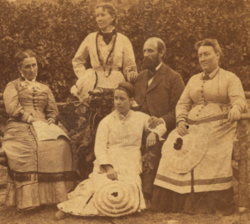| Mormonism and polygamy |
|---|
 |
Polygamy is the state of being married to more than one person at the same time. It is illegal in many countries. The following is a list of polygamy court cases:
| Mormonism and polygamy |
|---|
 |
Polygamy is the state of being married to more than one person at the same time. It is illegal in many countries. The following is a list of polygamy court cases: